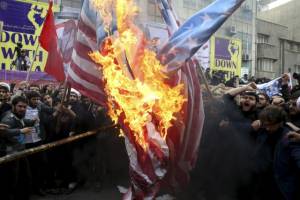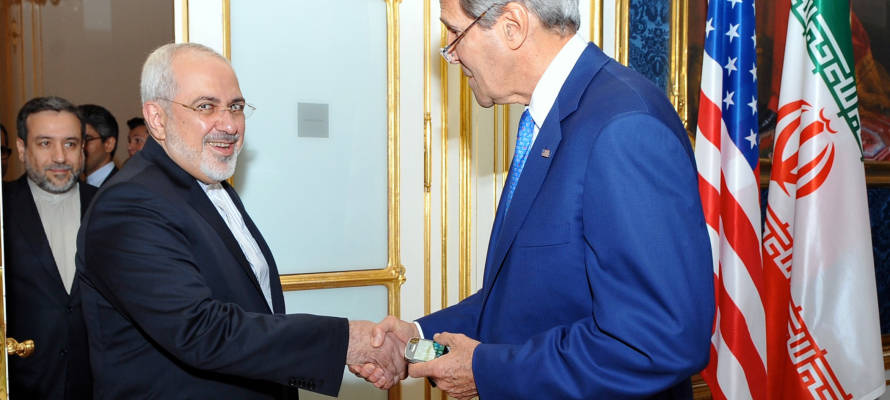The U.S. is purchasing 32 tons of Iranian heavy water, a key component in atomic development, in an effort to secure its nuclear deal with the Islamic Republic.
A sales agreement between the Energy Department and a subsidiary of the Atomic Energy Organization of Iran, under which the Energy Department’s Isotope Program purchased the heavy water for $8.6 million, was signed in Vienna on Friday, officials said.
The heavy water will be stored at the Oak Ridge National Laboratory in Tennessee and then resold on the commercial market for research purposes.
Heavy water, formed with a hydrogen isotope, is not radioactive but has research and medical applications and can be used to produce weapons-grade plutonium. Under the nuclear deal, Iran is allowed to use heavy water in its modified Arak nuclear reactor, but must sell any excess supply of both heavy water and enriched uranium on the international market.
The Obama administration is trying to address Iranian complaints that U.S. financial regulations are denying Iran the sanctions relief it deserves under last year’s landmark nuclear deal.
Meeting with Iran’s foreign minister on Friday, Secretary of State John Kerry said the United States would not stand in the way of foreign banks or firms doing business with Iranian companies that are no longer subject to U.S. sanctions.
Kerry also said the administration was willing to further clarify what transactions are now permitted with Iran and urged foreign financial institutions to seek answers from U.S. officials if they have questions. They should not assume, he said, that was once prohibited is still prohibited. Nor, he added, should they assume that transactions with Iran that remain illegal for U.S. companies are illegal for foreign firms.

Iranian demonstrators burn a US flag during an annual rally in November 2015.(AP/Vahid Salemi)
Kerry’s remarks, which came at the start of his second meeting this week with Iranian Foreign Minister Mohammad Javad Zarif, were an attempt to resolve confusion about what is permitted under the nuclear deal in which Iran agreed to curb its atomic program in exchange for billions in sanctions relief. Iran, as well as foreign banks and governments, have been clamoring for clarity, but it was not clear that Kerry’s remarks would provide it.
“The United States is not standing in the way and will not stand in the way of business that is permitted with Iran since the (nuclear deal) took effect,” Kerry said, reading carefully from a prepared text. “We’ve lifted our nuclear-related sanctions as we committed to do and there are now opportunities for foreign banks to do business with Iran. Unfortunately, there seems to be some confusion among foreign banks and we want to try to clarify that as much as we can.”
“We have no objection (to) foreign banks engaging with Iranian banks and companies, obviously as long as those banks and companies are not on our sanctions list for non-nuclear reasons,” he said.
Kerry, however, stressed that the confusion and remaining U.S. sanctions on Iran – imposed for its ballistic missile tests, human rights abuses and support for terrorism – are not the only reasons for foreign reluctance to do business with Iran. He cited the fragility and questionable integrity of Iran’s banking system as well as other behavior that gives business executives pause about jumping into the Iranian market.
Although Iranian news agencies reported in early March that a deal would soon be finalized, members of Congress criticized the deal as another example of the Obama administration giving Iran more that it is entitled to.
The US Energy Department said the heavy water purchase does not go beyond the scope of the nuclear agreement, and stressed that future purchases were not automatic.
By: AP
